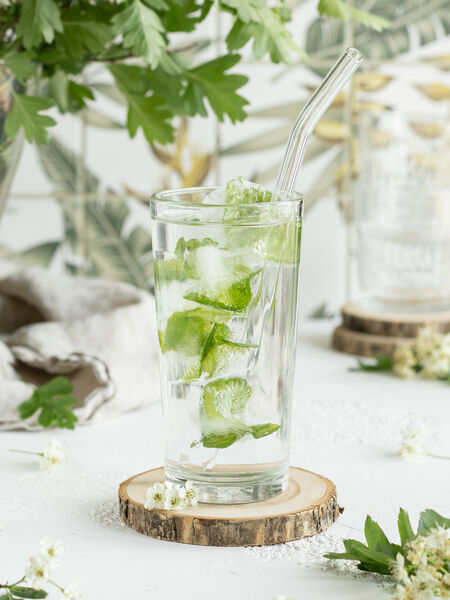The Importance of Using the Correct Water

When it comes to tea it’s imperative that you use the right water.
As tea lovers we are all guilty of overlooking the type of water we use despite how much time and attention we put into picking the best teas. However, no matter the quality of your tea, you are essentially getting a lesser experience by using unfiltered tap water.
Lu Yu (tea scholar) once said that the best way to brew your tea was to use fresh mountain spring water from the same region as the tea and while that is impossible for most of us to do, there are still step we can all take to make sure that we can enjoy every aspect of our teas down to the most delicate notes in their flavor profile.
Why it's so Important
The reason you shouldn't use tap water to prepare your teas is because tap water contains many impurities including chemicals and dangerous containments such as chlorine, disinfectant byproducts, heavy metals such as lead, mercury and arsenic as well as minerals such as magnesium, fluoride, calcium and zinc all of which can affect the flavor of your tea and.
By filtering your tap water you are removing the impurities while retaining the elements you want. Water companies do their best work to provide clean water for everyone but because it does come from reservoirs and several other sources there is only so much they can do. So while they talk the talk, when it comes to clean water it may not be as clean as you think. No matter if you live in an area with hard water or soft water, you still need to filter.
The difference is very subtle when you prepare flavored or scented teas and tisanes, but when you are preparing traditional teas the difference is immediately noticeable because when it comes to fine teas, the subtleties are everything. You will be floored by the difference in complexity, aroma, finish and texture that just making this one simple change will make. Not only will it affect your tasting for the better but it will also help to increase the lifespan of your kettle, protecting the element within it from the build-up of limescale.
A change to higher-quality filtered water can turn a good tea great and make a great tea even greater, while low-quality filtered tap water can make even pricey tea taste sour and acrid and give it a dry texture that will leave you feeling dehydrated. Yes, you'll be paying for filters but in the long run, you will spend less on filtered water than you would lose by ruining pricey tea with low-quality "clean" water.
Some people will go even further than just simply filtering so they can make sure their water is as pure as possible, however, if you are just starting your journey with filtering the water you use for your tea, it is best to start simple at first and move onto purifying your water further in the future.
How to Filter Your Water
We recommend starting your filtering journey with our water purifier GraviTEA.
This is a quick, economical alternative to bottled water for better-tasting tea. It removes up to 80% of chlorine and 70% of limescale from tap water in seconds, dramatically improving the taste of tea and other beverages. It's also very quick, removing impurities at twice the speed of similar products. The cost savings are even more impressive. Its 60-day filters (one included free when you purchase) will save you 90% of the cost of bottled water. A digital indicator will signal when these should be changed.
Water not only can be too hard, it can be too soft, too!
It is however important to make sure that you strike the right balance when it comes to filtering your water because you want water that is within the Goldilocks zone and is just right. Hard water will produce a bitterness in tea and block out some of its most delicate notes, and water that is too soft will produce flat-tasting tea.
This is why some tea enthusiasts will add Maifan rocks into their kettle alongside their soft water to make sure the water has the perfect level of minerality; these rocks not only add minerals but they are also able to remove impurities from the water as well.
With any pH above 7, it's best to filter before brewing to prevent the unwanted flavor of extra minerals. If you are unsure about whether your water is too hard to use for tea, you should filter it first and then bring it to a boil. Should you be able to smell the minerals, you'll know it is too hard to use for tea and you should consider a stronger filter.
Another way to tell if you live in a hard water area is to prepare yourself a cup of tea and then leave it slightly too cool. If a film forms that break when you disturb the cup this means your water is hard and while there are lots of things that can cause this to happen the leading cause of this is a high amount of calcium carbonate within the water. This film can also cause your tea to taste bitter and while bitterness and astringency in some teas are great, in others it is not and can ruin the whole experience.
While water isn’t the only factor that plays into how your tea tastes, it is one of the only ones that you can completely control alongside water temperature, which will take your tea-tasting experience to the next level.
